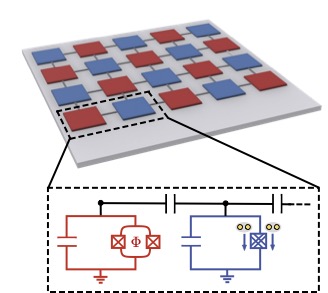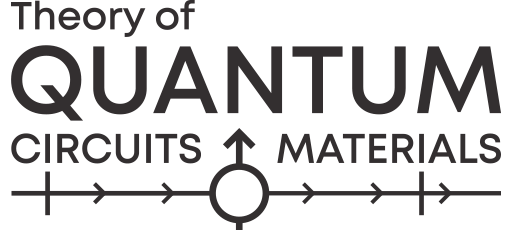Recent advances in quantum information encodings, such as the 0-Pi circuit and the fluxonium qubit, have opened up exciting possibilities for error-protected quantum information storage. However, the operation frequencies of these novel error-protected qubit designs are substantially reduced, hovering around 100 MHz, a stark contrast to the well-known GHz frequency range of superconducting transmon qubits. This shift in operational frequency presents an exciting challenge: How do we adapt gate-control and qubit readout for these new superconducting qubit designs? Clearly: “Novel qubits require novel control schemes“!
Motivated by this challenge, our research groups works on the development and optimization of novel control schemes for superconducting qubits. In our previous work, we have theoretically developed the first heterogeneous superconducting quantum computing architecture, enabling fast and high-fidelity qubit gates between error-protected low-frequency qubits and high-frequency superconducting transmon qubits. This heterogenous approach aims to synergize the robust quantum information storage capabilities of low-frequency qubits, serving as quantum memories, with the well-established computational capabilities of superconducting transmon qubits. Additionally, we have also explored novel gate protocols for architectures based on protected superconducting qubits. Specifically, in a joint work with collaborators from the Niels Bohr Institute and CU Boulder, we have developed multi-qubit gates for protected 0-Pi qubits.
Moving forward, we will continue to explore this direction with a focus on optimal control techniques and an expansion to the domain of superconducting qubit readout. These lines of research will provide new avenues for optimized operation of superconducting quantum processors, which is a crucial component for quantum algorithms and quantum error correction protocols.

